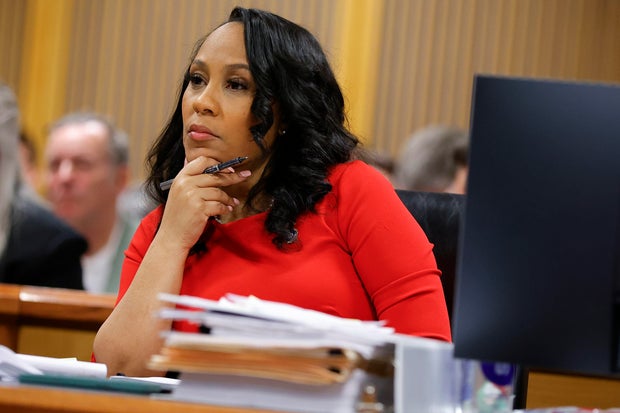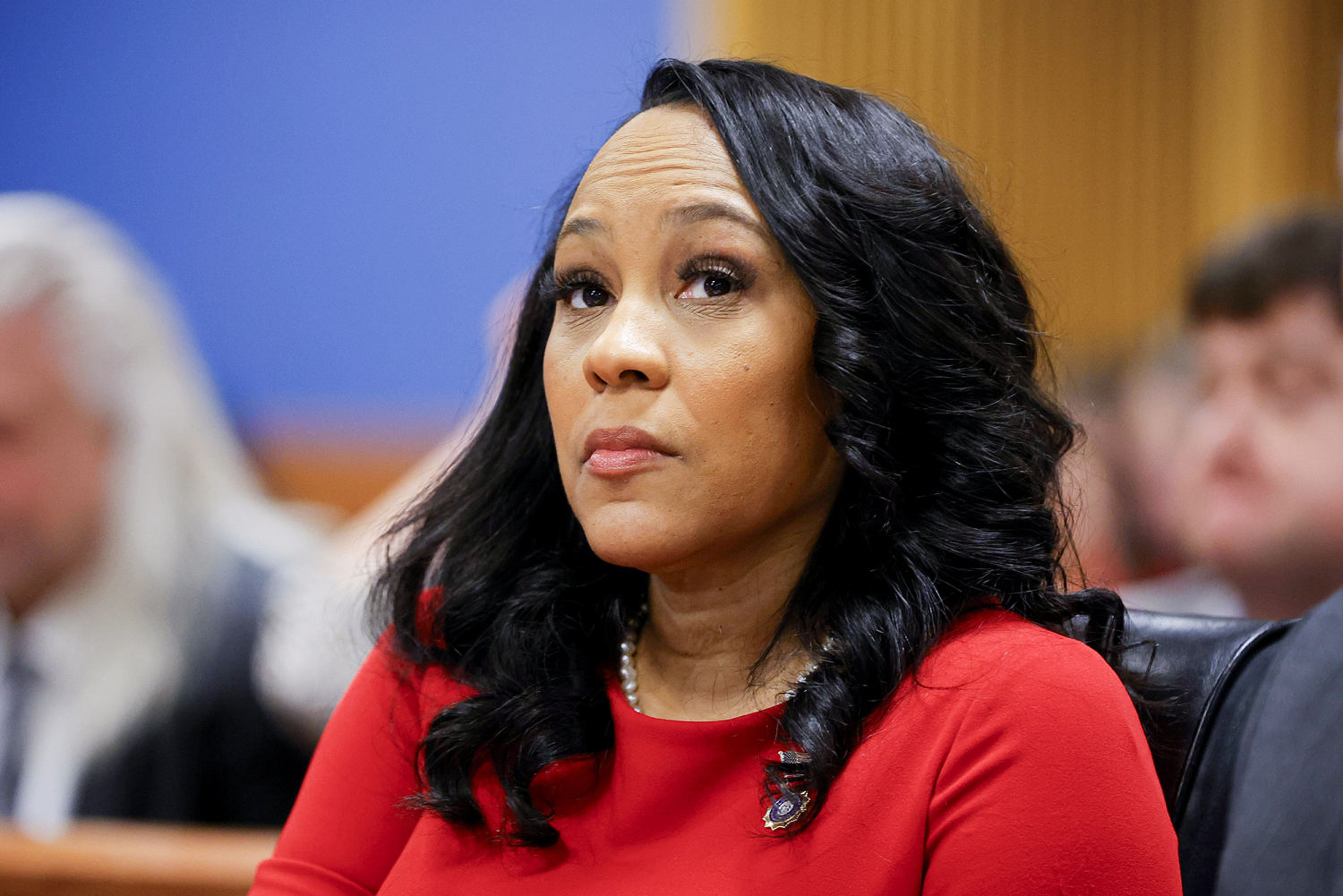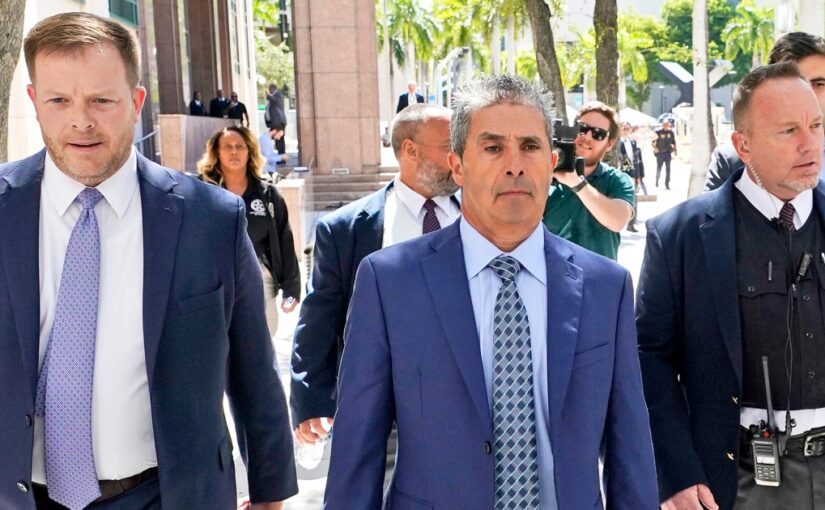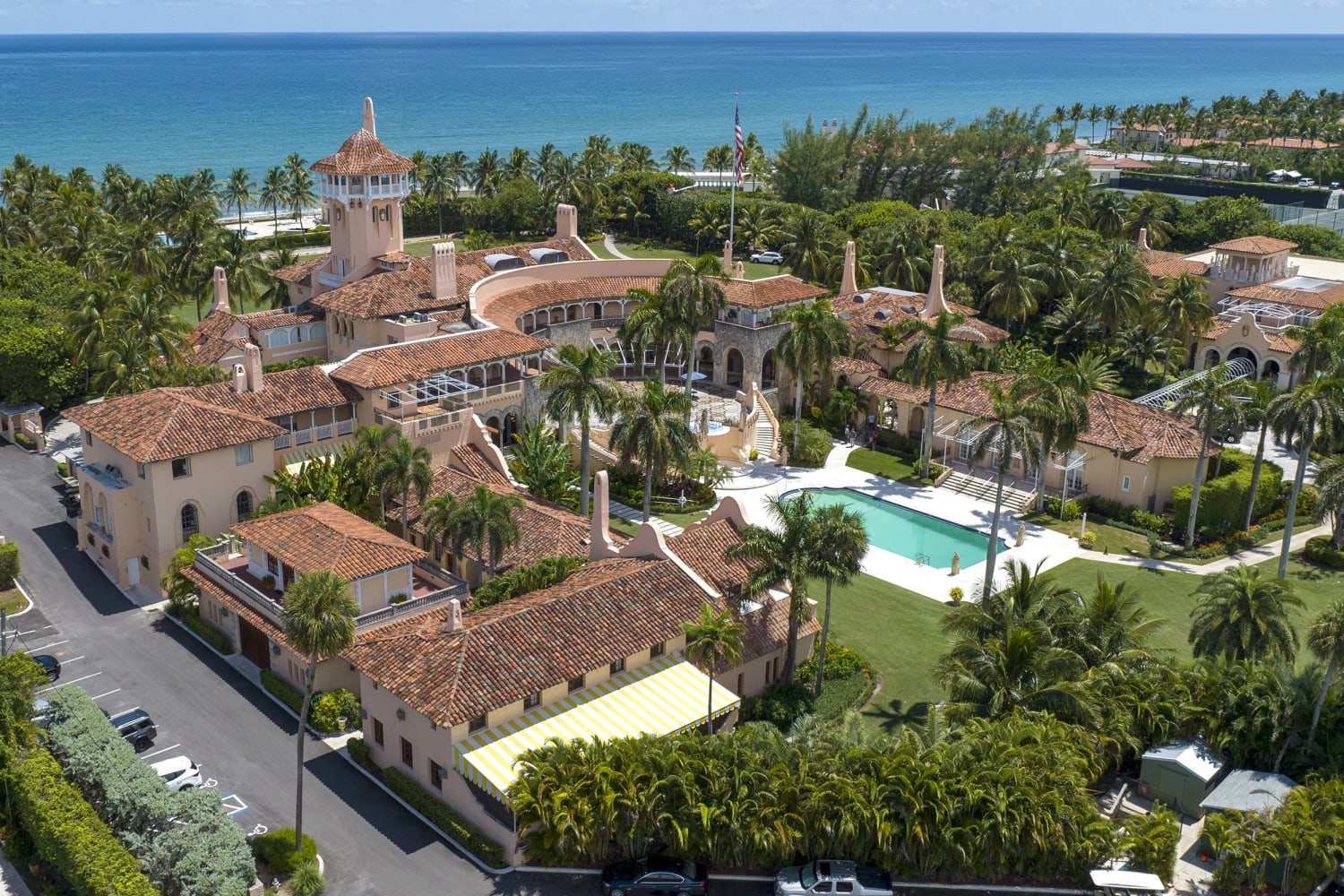Former President Donald Trump and eight other defendants accused of illegally trying to interfere in the 2020 election in Georgia on Friday submitted a formal application to appeal a judge’s ruling allowing Fulton County District Attorney Fani Willis to remain on the case.
Trump and other defendants had tried to get Willis and her office tossed off the case, saying her romantic relationship with special prosecutor Nathan Wade created a conflict of interest. Superior Court Judge Scott McAfee earlier this month found that there was not a conflict of interest that should force Willis off the case but said that the prosecution was “encumbered by an appearance of impropriety.”
McAfee’s ruling said Willis could continue her prosecution if Wade left the case, and the special prosecutor resigned hours later. Lawyers for Trump and other defendants then asked McAfee to allow them to appeal his ruling to the Georgia Court of Appeals, and he granted that request.
The filing of an application with the appeals court is the next step in that process. The Court of Appeals has 45 days to decide whether it will take up the matter.
The allegations that Willis had improperly benefited from her romance with Wade upended the case for weeks. Intimate details of Willis and Wade’s personal lives were aired in court in mid-February, overshadowing the serious allegations in one of four criminal cases against the Republican former president. Trump and 18 others were indicted in August, accused of participating in a wide-ranging scheme to illegally try to overturn his narrow 2020 presidential election loss to President Biden in Georgia.
Alex Slitz / Getty Images
The appeal application says McAfee was wrong not to disqualify both Willis and Wade from the case, saying that “providing DA Willis with the option to simply remove Wade confounds logic and is contrary to Georgia law.”
Steve Sadow, Trump’s lead attorney in the case, said in a statement that the case should have been dismissed and “at a minimum” Willis should have been disqualified from continuing to prosecute it. He said the Court of Appeals should grant the application and consider the merits of the appeal.
A spokesperson for Willis declined to comment.
Willis used Georgia’s Racketeer Influenced and Corrupt Organizations, or RICO, law, an expansive anti-racketeering statute, to charge Trump and the 18 others. Four people charged in the case have pleaded guilty after reaching deals with prosecutors. Trump and the others have pleaded not guilty.
McAfee clearly found that Willis’ relationship with Wade and his employment as lead prosecutor in the case created an appearance of impropriety, and his failure to disqualify Willis and her whole office from the case “is plain legal error requiring reversal,” the defense attorneys wrote in their application.
Given the complexity of the case and the number of defendants, the application says, multiple trials will likely be necessary. Failure to disqualify Willis now could require any verdicts to be overturned, and it would be “neither prudent nor efficient” to risk having to go through “this painful, divisive, and expensive process” multiple times, it says.
In his ruling, McAfee cited a lack of appellate guidance on the issue of disqualifying a prosecutor for forensic misconduct, and the appeals court should step in to establish such a precedent, the lawyers argue.
Finally, the defense attorneys argued, it is crucial that prosecutors “remain and appear to be disinterested and impartial” to maintain public faith in the integrity of the judicial system.



